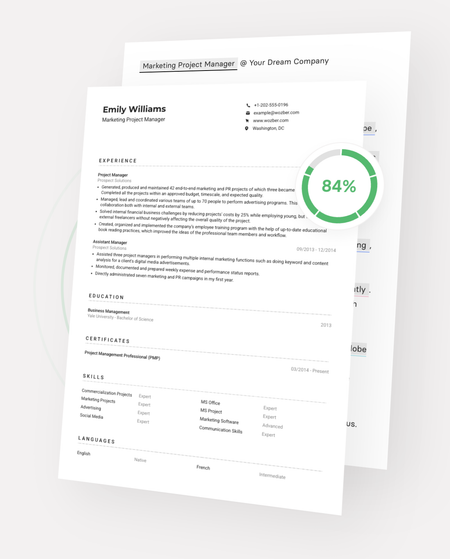
Dive Deep - How to Master this Leadership Principle
One of the leadership principles that Amazon emphasizes is "dive deep," which means that you should understand your business, your customers, and your competition in detail.
About the author: VP of Engineering, Program Manager, Coach, and Founder, specializing in career coaching, behavioural and system design prep. Book time with them here.

Whether you’re developing a new strategy or trying to achieve a specific objective, everyone in the organization should be included in discussions and decisions that could have a big impact on their work and the business. This is a key tenet of the Dive Deep leadership. Note that this leadership pricinple can be exchanged with Deep Dive depending on the usage. It all means the same however!
What does the Dive Deep leadership principle mean?
One of the leadership principles that Amazon emphasizes is Dive Deep, which means that you should understand your business, your customers, and your competition in detail. You can’t do this without doing a lot of reading — but that’s not all it means. It also means having detailed discussions and brainstorming sessions with anyone who might be able to help you understand the business issues better. And it means writing documents that explain your view of the world, so you can get feedback from others.
When you’re interviewing at Amazon, interviewers will expect to see that you have done some of this work — they’ll ask about it directly in most cases. If you’re interviewing for a very specialized role (for example, working on Amazon’s supply chain), it makes sense to do a Deep Dive on Amazon’s supply chain and talk about what you learned with your interviewer. If you’re applying for a more general position (such as product management or software development), any area will be suitable — but it has to be something specific within Amazon.
What do you think it takes to deeply understand customers?
To Dive Deep, you must be curious and willing to ask questions. You also need to be able to listen and learn from all kinds of people, whether they’re your peers or managers, employees or customers.
The ability to find the root cause is also critical — no matter what the problem is that needs solving. It’s important not only to do this quickly but also effectively so you don’t waste time trying out solutions that won’t help you reach your end goal.
What do you think it takes to deeply understand business?
There are many ways to understand a business deeply. In this article, I’ll focus on the following principles:
1. Being a customer and looking at your product from their point of view.
2. Understanding how your product works internally and how it helps the customers.
3. Understanding the strategy and how you fit into it.
4. Learning about your competition and seeing how they work.
5. Learning about other products in your industry (and outside) to see what they’re doing right/wrong.
What are the advantages to being a Deep Diver?
On the surface, this seems like a pretty clear direction. Leaders should be deep in the details and not just manage by zoom.
But what are the good parts of being a Deep Diver? I think there are three primary reasons why this leadership principle is valuable:
1. You can make better decisions.
2. You can add value.
3. You can build trust.
How do you think Dive Deep can make someone successful?
It addresses the challenge of knowing vs. guessing and helps you make data-driven decisions by establishing a strong understanding of the business, customers, and processes.
It makes you an expert at your domain and empowers you to make informed decisions.
To Dive Deep is to go beyond the surface to understand the problem at hand in detail. A leader who Dives Deep will not be satisfied with just knowing what they know. They will dig deeper into understanding the problem from every angle, from every perspective. People who Dive Deep love learning and have a passion for knowledge.
While diving deep is important for leaders, it applies to everyone working on a product or project that requires critical thinking and problem-solving skills.
Is there anything you think is difficult about diving deep?
Yes. It is hard work to Dive Deep. Diving deep is not about memorizing facts or reading articles on the internet. It requires time and effort to understand a concept well enough to explain it to others. It is not just knowing the solution but also knowing why it works because when you can explain why you know the concept inside out and backward. You have the depth of knowledge that comes from understanding the fundamentals of any subject. You may find it easy to memorize facts but with this approach, when faced with a new problem or a different situation, you won’t be able to apply your knowledge. You don’t have the first principles of thinking needed to solve complex problems.
Interview questions related to Deep Dive:
- Tell me a time you gave insights beyond the data.
- Have you ever leveraged data to develop a strategy?
- Tell me about a problem you had to solve that required in-depth thought and analysis. How did you know you were focusing on the right things?
- Walk me through a big problem in your organization that you helped to solve. How did you become aware of it? What info did you gather, what was missing, and how did you fill the gaps? Did you do a post mortem analysis and what did you learn?
- Can you tell me about a specific metric you’ve used to identify a need for change in your department? Did you create the metric or was it readily available? How did this and other info influence the change?
- Tell me about a time you had to quickly adjust your work priorities to meet changing demands?
- Walk me through a time when you had to get through one of the hardest challenges at your work?
About the author: Andrea Della Corte
VP of Engineering, Program Manager, Coach, and Founder, specializing in career coaching, behavioural and system design prep. Book time with them here.
Get Started
Linkedin & Resume Makeover
We will optimize your Resume & LinkedIn with our expert review & rewrite services.
Coaching Sessions
Our coaches will work with you on detailed, tailored sessions to get you ready for any challenge.
Negotiation Support
We will be by your side to review your contract & negotiate the salary you deserve.
Client Testimonials
Success stories from professionals who transformed their careers

"Hande's coaching was transformative. She didn't just help me prepare for Amazon's rigorous interviews—she made the process human, boostin..."

"All coaches gave me great tools to boost my confidence for my next interview process. Would definitely recommend."

"Interesting design problem, as always good advices regarding behavioural questions. A very good test before actually doing an interview o..."

"The lessons and guidance were appropriate to my needs and the expertise was thorough. The coaching was effective with homework. I landed ..."

"My coach was very helpful with insights on what I should focus on going into my phone interview."

"Arpitha is a truly fantastic coach, and helped tremendously with every aspect of the interview preparation, knowing what I need to focus ..."

"I am extremely grateful for the time and effort that Andrea invested in helping me improve my system design interview skills, and I would..."

"The Team of Andrea, Hande & Arpitha has been so good to me over the last fortnight they are incredibly accommodating to adapt to your sch..."
Ready to achieve similar results?
Find Your CoachSchedule your free consultation
Pick a time that works for you. In a short intro we’ll understand your goals and map out a plan to win offers.
- Quick intro (15–20 min) — no prep needed
- Share your target roles and timeline
- Get a personalized prep plan and next steps
- We’ll suggest the best coach to start with



